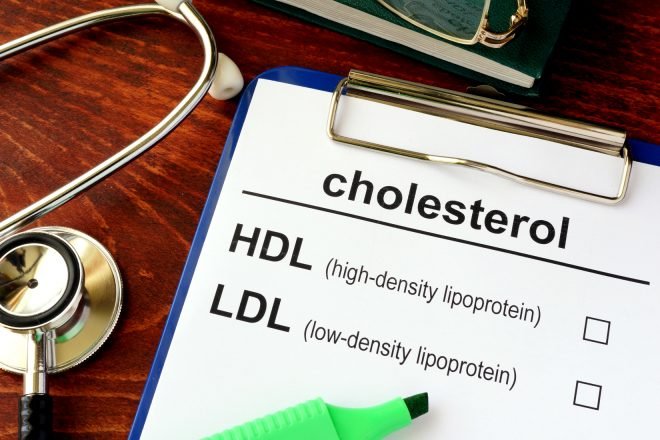Advertisment
Both high and low levels of LDL cholesterol up the risk of death

Both high and low levels of lipoprotein cholesterol (LDL-C) appear to be associated with an elevated risk of all-cause death, researchers from a Danish general population study reported on Dec. 8, 2020 in the BMJ/British Medical Journal.
“In the general population, low and high levels of LDL-C were associated with an increased risk of all-cause mortality, and the lowest risk of all-cause mortality was found at an LDL-C concentration of 3.6 mmol/L (140 mg/dL),” the authors said.
Copenhagen General Population Study subjects were recruited in 2003-15. They were followed for a median of 9.4 years.
The investigators tracked the correlation of baseline LDL-C to the risk of mortality as measured with standard evaluative tools. The primary outcome was all-cause mortality.
The investigators enrolled 108,243 subjects, aged 20-100. Of these, 11,376 (10.5%) died during the study, at a median age of 81.
The researchers found a U-shaped association between levels of LDL-C and the risk of death, with low and high levels of LDL-C both associated with an increased risk of all-cause death.
When compared with subjects with LDL-C in the range of 3.4-3.9 mmol/L (132-154 mg/dL), the hazard ratio for all-cause mortality was 1.25 (25% higher risk) for subjects with LDL-C of less than 1.8 mmol/L (<70 mg/dL) and 1.15 (15% higher risk) for subjects with LDL-C above 4.8 mmol/L (>189 mg/dL).
LDL-C associated with the lowest risk of all-cause death was 3.6 mmol/L (140 mg/dL) in the overall study group and in subjects not on lipid lowering treatment, compared with 2.3 mmol/L (89 mg/dL) among subjects on lipid lowering treatment.
There was no significant difference in mortality outcomes for men and women.
Increases in LDL-C were associated with an increasing risk of myocardial infarction.
“These new results are likely to have implications for the interpretation of levels of LDL-C in clinical practice. As expected, the risk of myocardial infarction increased with any increase in the level of LDL-C,” the authors said.





